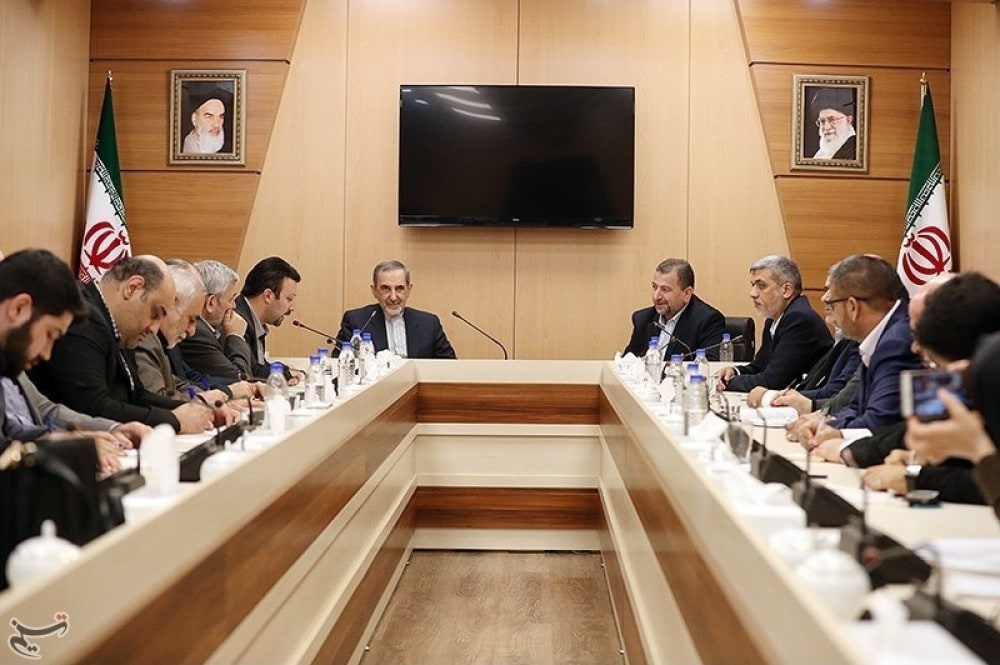In an October 23, 2017 article in the Saudi daily Al-Riyadh, Saudi journalist and academic Baina Al-Mulhim leveled scathing criticism at Hamas. The article was written against the backdrop of the recent rapprochement between Hamas and Iran, reflected in a visit by a high-ranking Hamas delegation to Tehran and in statements by Hamas officials stressing the importance of tightening relations with Iran and praising this country's financial and political support of Hamas.[1] Al-Mulhim wrote that Hamas is experiencing a crisis of identity because, despite being a Sunni movement, it follows the Shi'ite Iranian model and has established an Iranian emirate in Gaza, and its leaders are completely subordinate to Iran's ayatollahs. She added that Hamas, like Hizbullah, is not a resistance movement but rather a "contractor" implementing the Iranian agenda, and is exploiting the problems of the Palestinian people for political purposes.
The following are excerpts from her article:

The Hamas delegation meets with Iranian officials in Tehran (image: alray.ps, October 22, 2017)
"It has been only a short while since the Hamas-Fatah reconciliation [agreement] was signed, [during which] I wondered, in another article, if Hamas was really serious, and if the reconciliation would cause it to return to its sanity and Arabhood... [yet] behold, just days ago [a report] was published about a Hamas delegation headed by Salah Al-'Arouri, deputy chairman of Hamas's political bureau, that arrived in Tehran last Friday [October 20, 2017] for a meeting with Iranian officials, as confirmed by a Hamas official... The official, who asked to remain unnamed, disclosed that the high-ranking delegation included several [other] members of Hamas's political bureau, and that it would meet with several Iranian officials over several days. He stated that the purpose of the visit was 'to inform the Iranian officials about the reconciliation agreement signed by Hamas and Fatah, and about [recent] political developments,' adding that the delegation would also discuss 'ways to strengthen and develop the bilateral relations between Hamas and Iran and ensure Iran's financial and political support of the movement, as well as [its assistance in] weapons.' Hamas's leader in Gaza, Yahya Al-Sinwar, likewise stressed that 'Iran is the greatest supporter of the Al-Qassam Brigades,' Hamas's military wing, 'in terms of weapons, money and training.'
"As is known, Iran is patron, for political purposes, of Sunni movements that maintain views that are radical in nature, among them Hamas. No one disagrees that political support is one thing and sectarian support is another. One of the paradoxes that should give pause to anyone who has tried in the past to justify Hamas is that Iran is supporting the [Sunni] Muslim Brotherhood in Egypt more than it is supporting the Shi'ite Da'wa Party in Iraq.
"In Gaza, Hamas has established an Iranian emirate that is completely subject to the Ayatollah [i.e. Iranian Supreme Leader Ali Khamenei]. We have not forgotten [Hamas leader] Khaled Mash'al's October 1, 2011 speech at Khamenei's palace, which was basically a reiteration his loyalty and obedience [to Iran]. Mash'al was, after all, no more and no less than a clerk to Iran's ayatollahs!
"The problem of ideological movements, such as Hizbullah and Hamas – which have marketed themselves as resistance movements while, according to the political path both have taken... are nothing but 'contractors' [for Iran] – is that their leveraging of in their people's problems for political, economic, and material purposes is the dominant pattern of behavior in their activity and positions. This is proven by their position on the revolution in Syria – which corresponds to that of their patron, Iran!
"Hamas is experiencing an internal crisis – a crisis more of identity than political – vis-à-vis the Arabs or vis-à-vis several Arab countries, headed by Saudi Arabia and Egypt. [Hamas] fears both these countries, [and] chose Iran not because it [Hamas] is an outcast – as those who defend its [pro-]Iran position try to claim – but because Hamas considers Iran a model it aspires [to emulate] when it establishes an Islamic emirate in Gaza.
"Hamas's return to the [bosom of the] Iranian regime, as evident from its visit [to Tehran] – when it knows full well that the path of return to the Arab [fold] passes only through Saudi Arabia – sends a message, that Hamas is still 'marching in place.'"[2]
[1] On the recent rapprochement between Hamas and Iran, see MEMRI Special Dispatch No.7144, Alongside Reconciliation With Fatah, Hamas Officials Tighten Relations With Iran, Call To 'Wipe Israel Off The Map', October 23, 2017.
[2] Al-Riyadh (Saudi Arabia), October 23, 2017.




